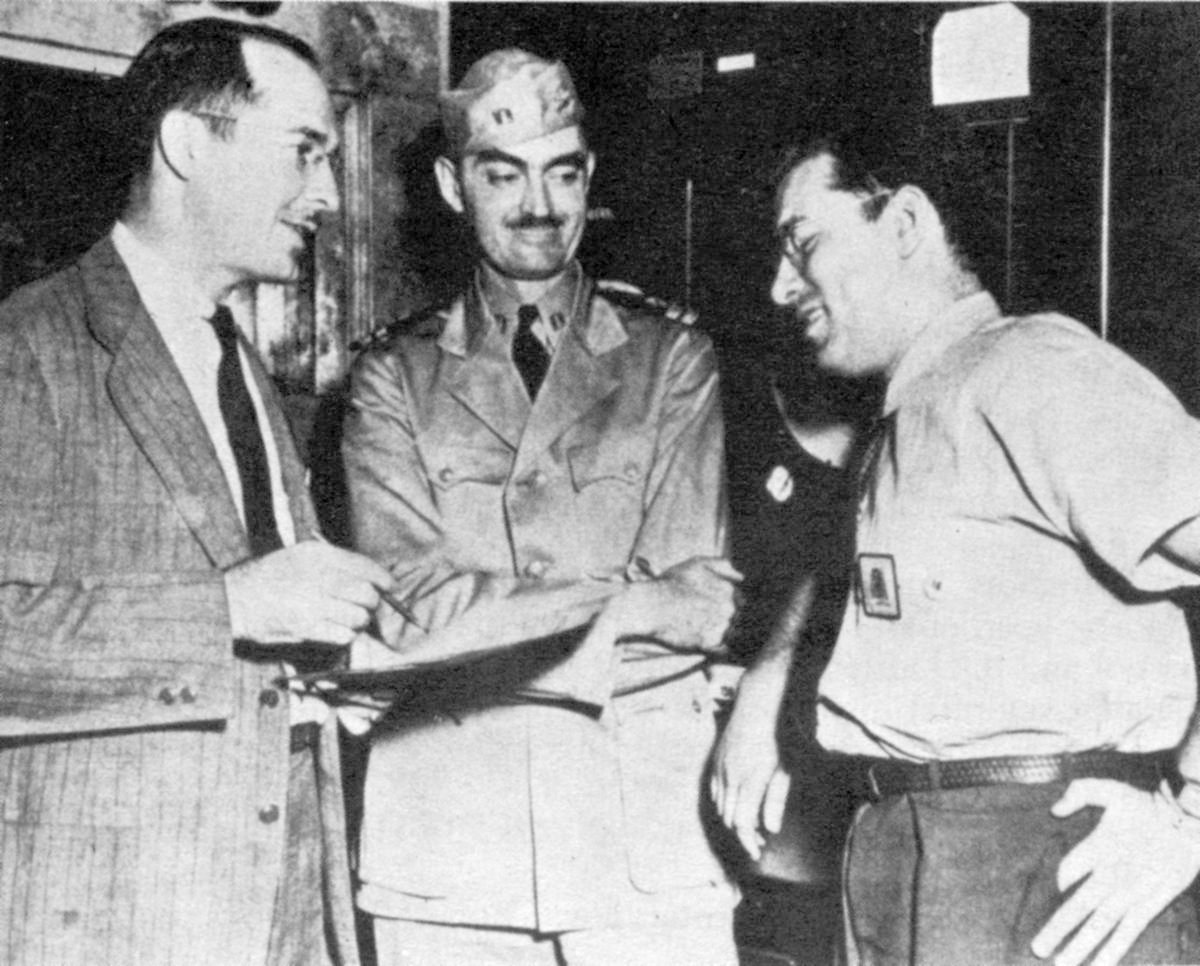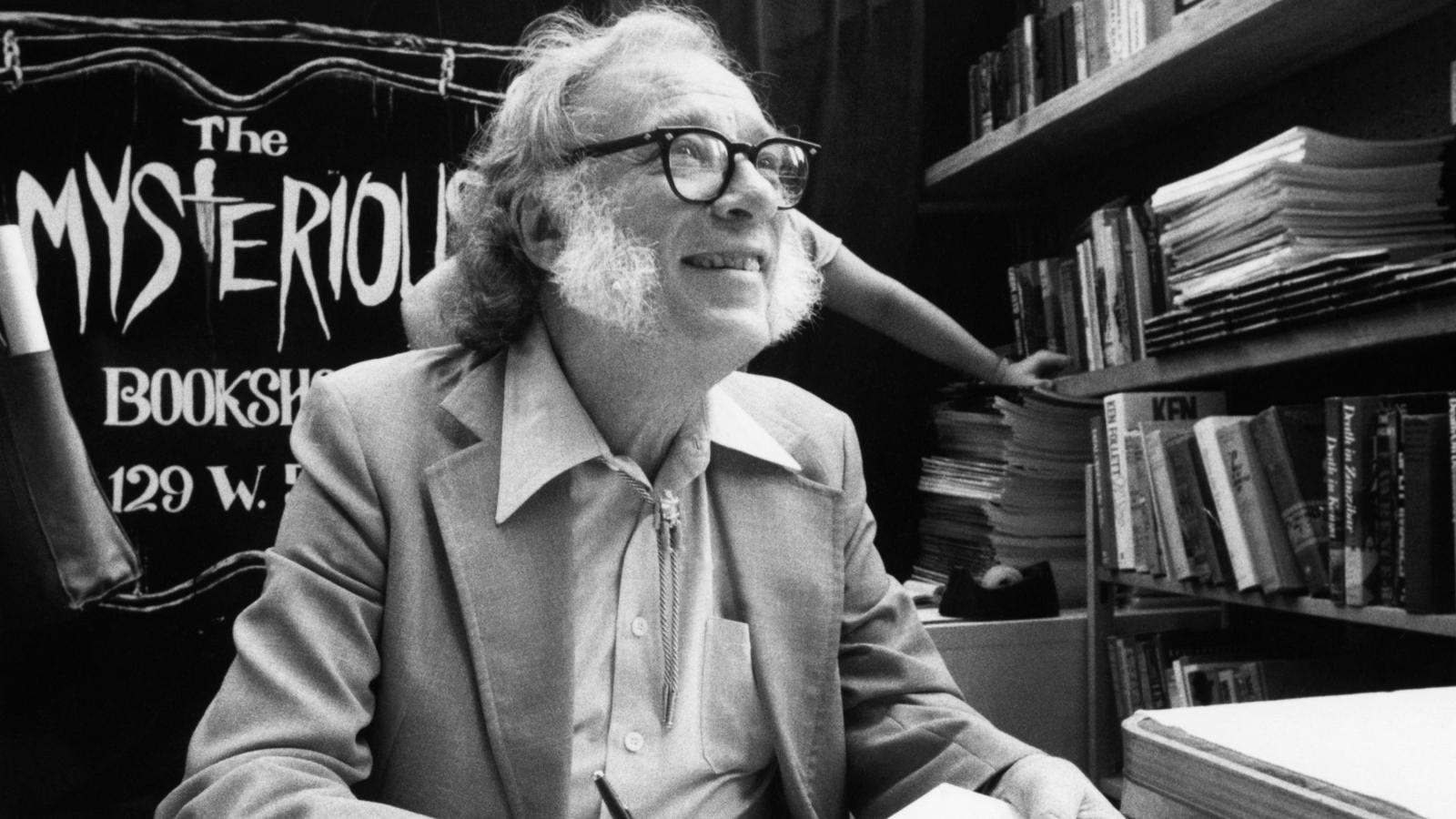In August of 1964, almost 60 years ago, author Isaac Asimov wrote a piece in The New York Times, titled Visit to the World's Fair of 2014.
In the essay, Asimov imagines what the World Fair would be like in 2014—his future, our present.
His notions were strange and wonderful, in the way that dreams of the future from the point of view of the American mid-century tend to be. There will be electroluminescent walls for our windowless homes, levitating cars for our transportation, 3D cube televisions that will permit viewers to watch dance performances from all angles, and "Algae Bars" that taste like turkey and steak ("but," he adds, "there will be considerable psychological resistance to such an innovation").
He got some things wrong and some things right, as is common for those who engage in the sport of prediction-making. Asimov understood about the entangled relationships among humans, technological development, and the planet—and the implications of those ideas for us today, knowing what we know now.
Asimov begins by suggesting that in the coming decades, the gulf between humans and "nature" will expand, driven by technological development. "One thought that occurs to me," he writes, "is that men will continue to withdraw from nature in order to create an environment that will suit them better. "
It is in this context that Asimov sees the future shining bright: underground, suburban houses, "free from the vicissitudes of weather, with air cleaned and light controlled, should be fairly common." Windows, he says, "need be no more than an archaic touch," with programmed, alterable, "scenery." We will build our own world, an improvement on the natural one we found ourselves in for so long. Separation from nature, Asimov implies, will keep humans safe—safe from the irregularities of the natural world, and the bombs of the human one, a concern he just barely hints at, but that was deeply felt at the time.
But Asimov knew that humans cannot survive on technology alone. Eight years before astronauts' Blue Marble image of Earth would reshape how humans thought about the planet, Asimov saw that humans needed a healthy Earth, and he worried that an exploding human population (6.5 billion, he accurately extrapolated) will wear down our resources, creating massive inequality.
"Although technology will still keep up with population through 2014, it will be only through a supreme effort and with but partial success. Not all the world's population will enjoy the gadgety world of the future to the full. A larger portion than today will be deprived and although they may be better off, materially, than today, they will be further behind when compared with the advanced portions of the world. They will have moved backward, relatively."
This troubled him, but the real problems lay yet further in the future, as "unchecked" population growth pushed urban sprawl to every corner of the planet, creating a "World-Manhattan" by 2450. But, he exclaimed, "society will collapse long before that!" Humans would have to stop reproducing so quickly to avert this catastrophe, he believed, and he predicted that by 2014 we would have decided that lowering the birth rate was a policy priority.
In 1983, the Toronto Star invited Asimov to predict the answer to a specific question: "What will the world look like in 2019?" It was a fitting time to pose the question, the Star's editors figured, because 1983 was 35 years after George Orwell penned 1984.
Asimov wrote that it was pointless to imagine the future of society if the United States and the Soviet Union were to engage in nuclear war, so he assumed that wouldn't happen. He then broke down his predictions under two main themes: computerization and space utilization.

Robert Anson Heinlein, Isaac Asimov, and Lyon Sprague de Camp. Wikimedia Commons
Computerization
Asimov was more or less correct in many of his predictions on the future of computerization, even if some of his forecasts were a bit broad and obvious, including:
- "Computerization will undoubtedly continue onward inevitably."
- The "mobile computerized object" will "penetrate the home," and the increasing complexity of society will make it impossible to live without this technology.
- Computers will disrupt work habits and replace old jobs with ones that are radically different.
- Robotics will kill "routine clerical and assembly-line jobs."
- "Society will need a "vast change in the nature of education must take place, and entire populations must be made "computer-literate" and must be taught to deal with a "high-tech" world." This education transition will be difficult for many, especially as world population grows at unprecedented rates.
Still, Asimov was wrong, or at least slightly off, on a few predictions about the future of computerization. For instance, he predicted that technology will revolutionize education, but that traditional schooling will become outdated as kids become able to learn everything they need to know from computers at home. That might technically be possible, but it also assumes that kids wouldn't spend all that time using technology to, say, play video games.
The ethical questions of artificial intelligence and proper robotic behavior his Robot series of novels explores seem particularly relevant today. Asimov, in a speculative essay, also predicted postmodern boredom, wireless technology and automation.
But although the writer’s predictions seem astute, he did have a strong scientific background, and admitted that the technologies he imagined weren’t all ones he could have designed. In a lecture given to NASA in 1985, Asimov mentioned one idea that had come to pass:
"Back in 1950, in a passage that was eventually published as the first section of my book Foundation, I had my protagonist pull out a pocket computer. I didn’t call it a pocket computer, I called it a 'tabulator pad'.”
By 1959, he did use the phrase "pocket computer," which appeared in a short story. Decades later, he said, somebody mentioned the idea to him and asked why he hadn’t patented it. After all, he could have made millions. His response boiled down to saying he only described what a pocket computer would look like, not how it would work. “I’ll be frank,” he said, “to this day I don’t know what is inside. I have evolved a theory; I think it’s a very clever cockroach.”
Space utilization
"We will enter space to stay," Asimov claimed in his essay. And he was mostly right: The International Space Station has been continuously occupied for more than 18 years.
But Asimov was a bit optimistic about future societies' space endeavors, predicting that humans would be "back on the moon in force" with mining operations, factories that "use of the special properties of space," observatories and even a solar power station that would beam microwaves back to Earth.
Asimov also thought we'd be on our way to establishing human settlements on the moon.
"By 2019, the first space settlement should be on the drawing boards; and may perhaps be under actual construction," he wrote. "It would be the first of many in which human beings could live by the tens of thousands, and in which they could build small societies of all kinds, lending humanity a further twist of variety."
NASA is indeed planning to send astronauts to the moon in about a decade, though it'll likely take longer than that for any nation to establish a permanent lunar settlement.
From one perspective, Isaac Asimov wasn’t really a novelist. He was more a futurist who also wrote novels. It’s hard to say which caused which, though: Asimov’s interest in science fiction, or his love of science. But they certainly shaped each other. Asimov was born in Petrovichi, Russia in 1920. His family moved to Brooklyn when he was three, and his parents ran a candy store, where he was first exposed to the luridly-colored science fiction magazines that would steer him toward his life’s work.
Today, Asimov is best-known for the science fiction that he started writing and publishing while still in his teens. Together with Robert Heinlein, he was one of the big science fiction writers of the midcentury who crafted “future history,” what today we would probably call speculative fiction.
He passed away on 6 April in 1992.
